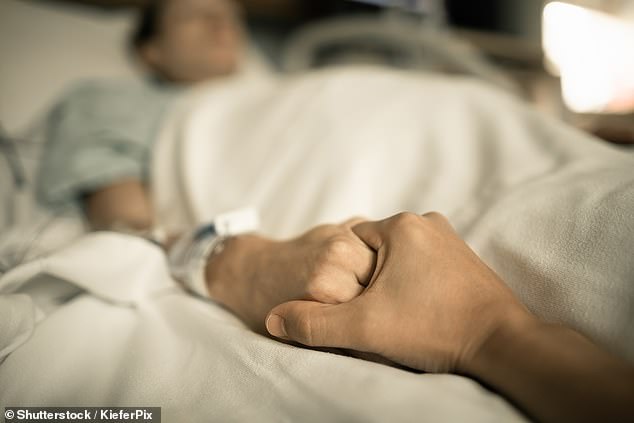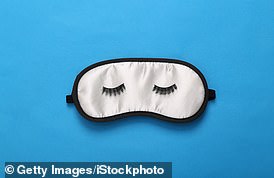Pioneering cooling boots and mittens to help stop painful chemo side-effect
Brian Conroy is used to the cold pinching his fingers and toes after a lifetime of working in construction and fishing in all weather conditions on weekends. But his hands and feet are now being deliberately cooled in a clinical trial – the first of its kind in the NHS – looking at reducing one of the most debilitating side effects of chemotherapy: peripheral neuropathy.
This type of nerve damage can cause constant pain, as well as a tingling sensation, weakness, or numbness in the fingers and toes.
While for some the side effect is short-lived, for many others it lasts for months, years or becomes permanent.
If the fingers are affected, it can make everyday tasks difficult, especially tricky tasks such as doing up buttons. And in toes it can cause balance problems, making patients dependent on walking aids.
Some research suggests that more than two-thirds of patients suffer from chemotherapy-induced peripheral neuropathy — and a 2019 study in the journal Pain reported that about 30 percent of patients will still have it a year or more after finishing chemotherapy to live.
Brian Conroy's hands and feet are deliberately cooled in a clinical trial looking at reducing one of the most debilitating side effects of chemotherapy: peripheral neuropathy
Dr. Rick Walshaw, a clinical oncologist at Clatterbridge Cancer Center in Liverpool, who is leading the new study, explains: 'Several chemotherapy drugs can cause peripheral neuropathy because they damage the small nerve endings that supply the skin in the fingers and toes. .'
Indeed, it is a side effect of some of the most common chemotherapy drugs, which are used for multiple types of cancer. These include the taxanes, such as paclitaxel, which are commonly used to treat breast, ovarian, prostate and lung cancer; as well as alkylating agents, including oxaliplatin, used to treat colorectal, gastric or pancreatic cancer.
Peripheral neuropathy can seriously affect patients' quality of life, explains Dr. Walshaw. 'A significant proportion may experience symptoms for years after completing chemotherapy, even if the cancer is in remission. It can be very persistent to treat once it has occurred.”
He adds: 'It also has a cumulative effect – so it may not be obvious after the first one or two cycles, but the longer patients use the drug, the more damage it can cause.
'If a patient develops peripheral neuropathy during treatment, the dose of oxaliplatin, for example, must now be reduced or even stopped. This may mean that we cannot get the cancer under control.'
Anecdotal evidence suggests that exercise, such as squeezing a squash ball, can improve symptoms in some patients, possibly by reducing inflammation.
Dr. Walshaw adds: 'Antidepressants and anticonvulsants can reduce the pain of peripheral neuropathy because these drugs increase chemicals in the brain that can affect pain signals – but there are no drugs to prevent or cure this.'
Brian, 64, is being treated with oxaliplatin after being diagnosed with bowel cancer earlier this year, and has already completed two of his four cycles of chemotherapy treatment (these are given every three weeks: his treatment ends in January), when he also started the hand cooling therapy.
Before he was diagnosed, Brian had been suffering from diarrhea for two months and had been taking loperamide, an over-the-counter tablet, daily to keep the symptoms under control. When he spoke to his GP about this being prescribed on a regular prescription, it was suggested that he make an appointment to see his doctor.
“They said my symptoms needed to be investigated,” recalls Brian, who lives with his wife in Birchwood, near Warrington, Cheshire.
After examining Brian, his GP referred him for an endoscopy, which uses a small camera to examine the bowel. “A tumor was found and they said it was most likely cancer,” says Brian. 'I was shocked because up until then I had been quite blasé.
“The first thing I said was, 'Where do we go from here?' '
In September, Brian underwent a CT scan, which showed that the cancer had not spread. He had surgery within two weeks and “was just happy to be alive,” he says. Then, before starting three months of chemotherapy, Brian was asked if he wanted to participate in the trial.
He says: 'I wanted to participate because I am self-employed in construction and want to continue using my hands and feet normally after my recovery, so that I can get back to work as quickly as possible. .'

Peripheral neuropathy can seriously affect patients' quality of life, explains Dr Walshaw (pictured)
Half an hour before each chemo session starts, he puts on specially fitted boots (similar to ski boot liners) and mitten-style gloves, and keeps them on while the oxaliplatin is administered through an IV in his arm (in his case for two hours). while sitting on a chair.
Cold water is pumped through tubes into the gloves and boots; the temperature is kept at about 15 degrees.
It is thought that when hands and toes are cooled, blood vessels constrict, reducing the delivery of chemotherapy drugs.
The approach is no different than using cold caps to reduce hair loss during certain types of chemotherapy. This cooling process reduces blood flow to the scalp, reducing the amount of medicine reaching this area, thus preventing hair loss.
Research published earlier this year in the Annals of Oncology showed promising results for the hand and foot cooling system.
The study in Belgium, using the same kit supplied in Clatterbridge, compared side effects in 77 patients given oxaliplatin with and without cooling. After twelve weeks, patients in the control group (who did not receive the cooling therapy) had 20 percent more peripheral neuropathy in their hands or feet compared to those who wore the cooling gloves and boots.
Similar results were found after 24 weeks, with the study showing that the treatment was generally well tolerated by patients.
The British lawsuit came about after medical student Emily Kelly, who was interning at Clatterbridge, spoke to Dr Walshaw about her mother Barbara's experiences with bowel cancer treatment. Barbara had done her own research and read about how cooling her hands and feet – which is also used in parts of Europe for breast cancer patients – could help her reduce these common side effects.
Dr Walshaw's team investigated the practicalities of keeping a patient's hands and feet cool during chemotherapy and borrowed two cooling systems from the equipment manufacturer, Hilotherm.
Because the loan was only valid for five months, it was decided to use the machines on colon cancer patients who received oxaliplatin, because the treatment fit within that time frame.
“This ongoing study addresses the feasibility of delivering this treatment without causing significant disruption,” says Dr Walshaw. 'We want to ensure that it is not too cumbersome for patients and that staff can easily implement it.
“A few years ago, this is how cold cap technology started,” says Dr. Walshaw. 'This was also tried in clinical trials in only a few patients, but today it is standard care for many.'
If the new study, which will see 25 bowel cancer patients treated at Clatterbridge's Wirral and Halton clinics, proves successful, the approach will be trialled in different types of cancer and with different chemotherapy drugs. The current investigation ends in March.
Dr. Duncan Gilbert, a consultant oncologist in lower gastrointestinal cancers at University Hospitals Sussex NHS Foundation Trust, welcomed the new trial.
'Peripheral neuropathy can be a major problem for patients. The effects can be lifelong and since many of these patients will be cured of their cancer, this can be a life-changing side effect.
“So it's very welcome to look at these types of cooling aids to improve healthcare in the long term.”
Brian's experience with the new kit so far has been promising.
'I had no tingling in my hands and toes after the first two sessions of chemotherapy, which was good. And the temperature is not unpleasant, just a bit cold, like going outside on a winter day without gloves,” he says.
'If this can prevent the tingling from being a lasting side effect, it is definitely worth doing.'

